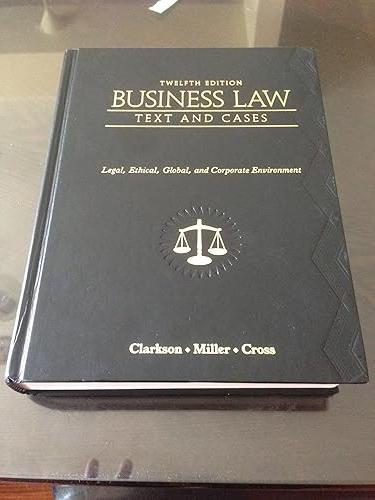On December 16, 2005, James M. Eaton, Jr., and Marguerite Eaton [his mother] * * * fi
Question:
On December 16, 2005, James M. Eaton, Jr., and Marguerite Eaton [his mother] * * * fi led a complaint against [Bobby Joe] Waldrop alleging, among other things, that Waldrop had fraudulently induced James to deed certain property situated in Jefferson County (“the property”) to Waldrop and Marguerite, jointly with a right of survivorship, and that Waldrop had subsequently fraudulently induced Marguerite to transfer her interest in the property to Waldrop. James and Marguerite requested that the court set aside the deed executed by James transferring the property to Marguerite and Waldrop * * * .
Marguerite subsequently died, and James, as the executor of her estate [the person designated in her will to handle her affairs on her death], was substituted as a plaintiff.
* * * The trial court conducted a bench [without a jury] trial on June 11, 2009. At the conclusion of James’s case-in-chief, Waldrop moved for a judgment as a matter of law, arguing that James had failed to prove that Waldrop had made a representation “with intent to deceive.”
The trial court granted that motion, and * * * James fi led his notice of appeal * * * .
On appeal, James * * * argues that the trial court erred in granting Waldrop’s motion * * * because, he says, the law does not require him to prove an intent to deceive in order to obtain a rescission of a deed based on fraud.
James cites [Alabama Code 1975, Section 6-5-101 and a previous case]
in support of his argument that intent to deceive is not a necessary element of fraud. Section 6-5-101 provides: “Misrepresentations of a material fact made willfully to deceive, or recklessly without knowledge, and acted on by the opposite party, or if made by mistake and innocently and acted on by the opposite party, constitute legal fraud.”
(Emphasis added [by the court].)
* * * The Alabama Supreme Court, citing [Section] 6-5-101 stated that “a false representation, even if made innocently or by mistake, operates as a legal fraud if it is a material fact that is acted upon with belief in its truth.” We also note that our [state] supreme court has applied [Section] 6-5-101 in an action to set aside a deed. * * * Accordingly, we conclude that Alabama law does not require a plaintiff seeking rescission of a deed based on an allegation of fraud to prove intent to deceive.......
Questions:-
1. Why was James arguing on appeal that intent to deceive was not a requirement for fraud? Given that Waldrop had told James that he and Marguerite were married, when in fact they weren’t, couldn’t intent to deceive be inferred? Discuss.
2. Recall from Chapter 1 that there are two types of remedies: equitable remedies and remedies at law. Is rescission an equitable remedy or a remedy at law? Why is rescission an appropriate remedy in this case?
Step by Step Answer:

Business Law Text And Cases Legal Ethical Global And Corporate Environment
ISBN: 9780538470827
12th Edition
Authors: Kenneth W. Clarkson, Roger LeRoy Miller, Frank B. Cross





